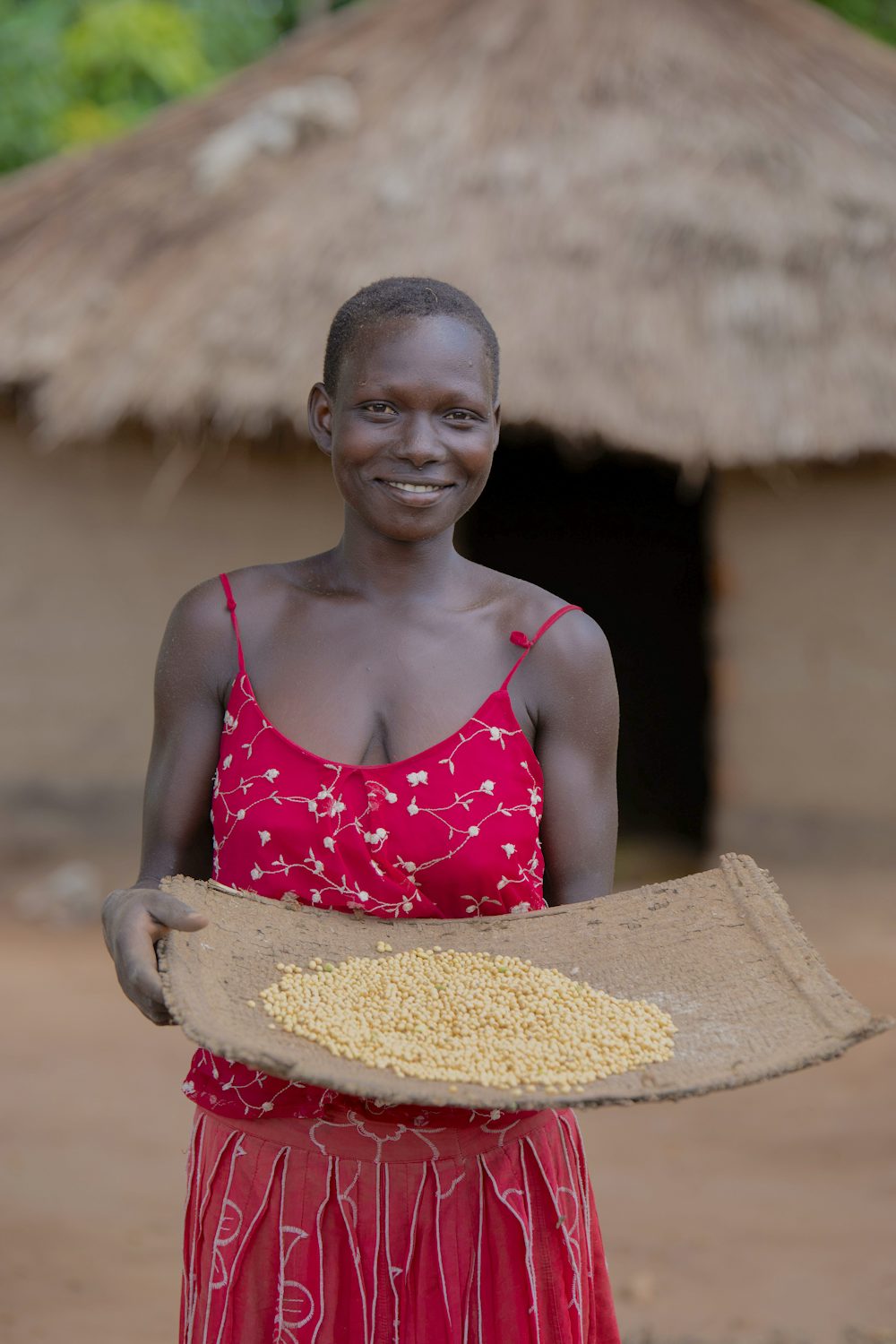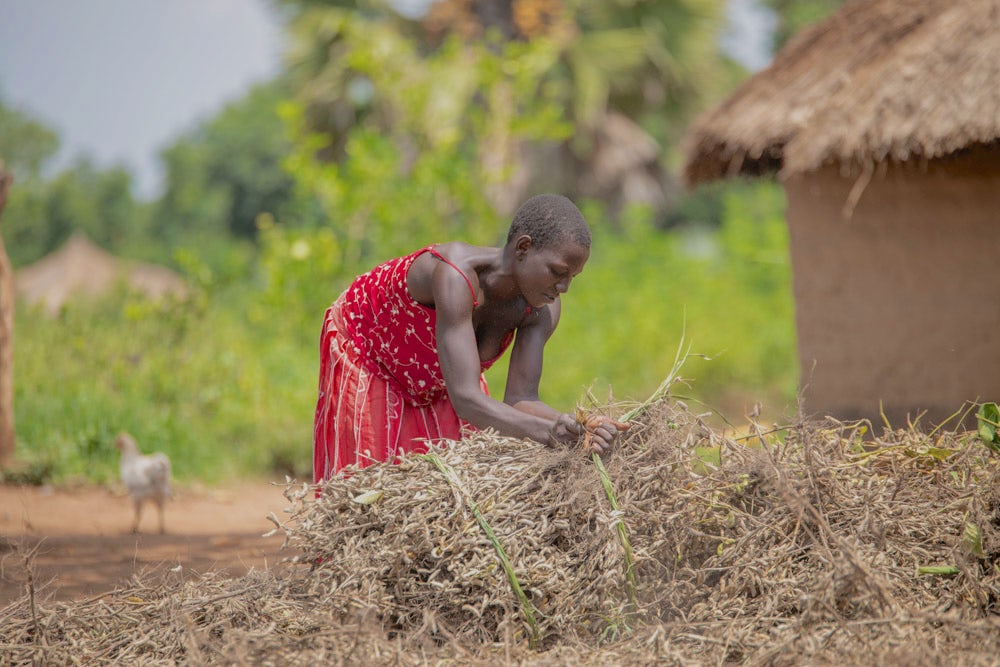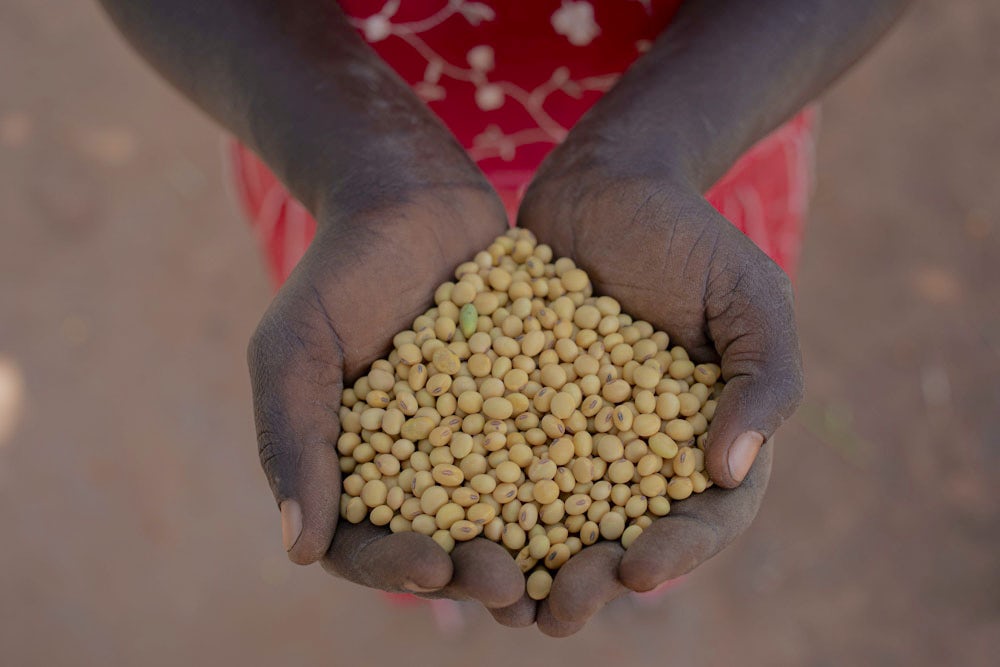Robina Akello is just over 5 feet tall, slightly built and soft spoken, her delicate features disguising the resilient 22-year-old mother that she is. The third born in a family of eight children, Robina is bright and intelligent and had the potential to excel at higher education and, thus, increase her chances of accessing the opportunities it might have provided.
However, her journey of formal schooling was first delayed by instability, then cut short: When Robina fell pregnant with her son, now 2, while she was still in her primary level studies, she had to drop out. The father abandoned her after their baby was born, leaving Robina with what could have been a bleak future. Fortunately, she refused to give up — and she had her Heifer self-help group to support her.

Robina is from the district of Dokolo in Northern Uganda, a region that, from the late ‘80s to 2006 suffered the scourges of a prolonged war between the government and rebel forces. Together with the ravages of an HIV/AIDS epidemic that endured from the early ‘80s through the mid-‘90s, the conflict damaged community, social and economic structures, like schools and health facilities, and resulted in a high incidence of poverty.
Today, agriculture forms the crux of the country’s economy, employing about 70% of the total labor force, most of whom are rural producers whose farms have low productivity and profits. In Dokolo District, where Robina lives, 90% of the population are primarily low-income subsistence farmers, relying on what they raise and grow to provide for their families.
While she was still in school, Robina had joined one of the self-help groups organized by Heifer Uganda to help young people in Dokolo work together to address their challenges and earn a decent income through agriculture, especially women and specific vulnerable groups, like young mothers. Here she had already begun to be oriented in Heifer’s values training and was developing leadership capacity and development plans with her fellow group members. Heifer also supported the group to form a cooperative, Dokolo Young Oilseed Farmers’ Cooperative, through which she received training in agricultural best practices, post-harvest handling, marketing, managing finances and other entrepreneurial skills.
When she was suddenly faced with preparing for a baby to arrive, this foundation she built through Heifer provided a path forward.

While three months pregnant and living at home, Robina acquired a seed loan from the cooperative in the form of 50 kilograms of hybrid soybean seed worth approximately $100. Soybean is a crop with high profit potential for young farmers in Dokolo due to a growing demand by local processing companies and the plant’s various uses in cooking oil, animal feed and other food products.
With the help of her family, and using the agricultural training she had acquired, she planted the soybean seeds whilst heavily pregnant. Once the plants matured, she sold the harvest to the cooperative, paid off the loan and remained with a profit of approximately $200, a notable achievement in a region where the annual household income was estimated to be less than $750 in 2019.
The seed loan function was facilitated by Heifer, who provided a seed fund subsidy to the cooperative that has been revolving and growing over time. The fund is housed under the cooperative’s savings and credit cooperative (SACCO) as one of its products. These investments enable food security and financial inclusion for women like Robina so that they can build towards a Sustainable Living Income.
“As a woman you also need your own empowerment and capacity to be productive,” said Patricia Ayaro, the manager of Dokolo Young Oilseed Farmers’ Cooperative, who has seen how engaging in agriculture has helped Robina and other young people in the area take an active role in their development.
Robina has since acquired, planted and harvested soybean two more times, with seeds provided from her cooperative on loan. She is able to sell each harvest to the cooperative for a fair market price and pay back the value of the loan at the same time; the cooperative then sells the harvest to a buyer in the country’s oilseed market on her behalf. The cooperative also picks up her crop directly from her farm, saving her the cost of transport, and provides her with access to crop insurance, agricultural supplies and other services.

With her improved economic status, Robina has been able to better provide for herself and her young son, who was born with significant physical health issues, as well as be of support to her father and family. She’s purchased three goats and plans on purchasing oxen to assist in the plowing of the land. She is supporting her father in the completion of a family home made from modern materials and, as a result of learning to spend wisely and save intentionally through Heifer’s financial training, has also begun a small business selling vegetables to supplement her income.
Robina speaks with calm confidence and hope about her additional plans to take training in tailoring, buy a sewing machine and build a tailoring business. “With the continued support of the cooperative and collaboration with my fellow cooperative members, I know that my future is bright,” she said.
Supporting women farmers is vital to our mission of ending hunger and poverty. This International Women's Day, learn more about this work or donate now to help more women increase their income, feed their families and build a better world.